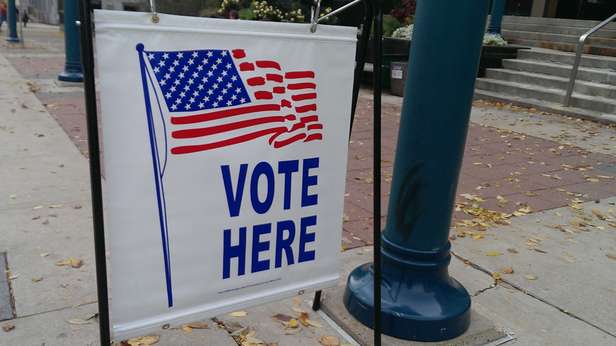
MacIver News Service | November 2, 2015
[Madison, Wisc…] Senator Duey Stroebel is calling out school districts for two common tactics in passing referendums he considers to be dirty tricks: holding referendums on low turnout elections and holding them on consecutive elections until they finally pass.Stroebel (R-Saukville), along with Senators Frank Lasee (R-De Pere) and Chris Kapenga (R-Delafield), has introduced a bill that would curtail both of these practices. If passed, school districts could only hold referendums during general elections (either spring or fall), and if a referendum fails, the school district would have to wait two years before trying again.
“By ensuring the referenda questions occur on general elections, more of the voting population will be tuned into the process,” Stroebel told the MacIver News Service. “With higher voter participation and a cool down period, schools must have a transparent discussion on the need to raise taxes.”
The MacIver Institute examined 211 school district referendums across Wisconsin from the past two years. That includes all questions from November 2013 through October 2015, for which DPI has recorded results. This information is available through DPI’s website.
Of those 211 referendums, 142 passed and 69 failed – an approval rate of 67 percent. Most were held during general elections (81 percent).
The most successful referendums were held during primary elections (passage rate of 79 percent), followed by general elections (66 percent). Special elections succeeded 62.5 percent of the time. There’s no difference between the success rates of fall and spring general elections.
Conversely, special elections resulted in the highest rate of failure for referendums. 37.5 percent of referendums held during special elections fail.
Regardless, some school districts still see that as the best way to go. Ithaca asked for $3.97 million on November 5, 2013 for various construction projects. It passed 288-113.
Voters in Geneva J4 turned down two referendums held during two separate special elections. In the fall of 2013, a $5.5 million construction request failed 70-208. The district then asked for $3.985 million for construction on May 19, 2015 and it failed 65-136.
Seven more school districts will try their luck in a special election this week, and they’re asking for some big ticket items too. Peshtigo wants $33 million to build a new middle-high school. Unity wants $17.5 million and Shawno wants $9.5 million for renovations. Boscobel, Potosi, Tigerton, and Tomorrow River are also holding referendums.
Other school districts throughout the state have found a different winning strategy. The combination of repeated requests and lower turnout elections generally lead to eventual success.
The school district of Delavan-Darien tried for $3.75 million in the fall general election in November 2014. It failed and so they tried again during the February primary three months later for $2.5 million. That time it passed. Election turnout was 5,659 the first time, and 1,923 the second time.
Durand School District stuck to general elections, but also did so in rapid succession. In the fall 2014 general it asked for $17.5 million for renovations and improvements. When that failed, it lowered the request to $13.48 million and went back to voters during the very next general election in the spring of 2015 – and won. Turnout in the fall was 2,920. In the spring it was 2056.
East Troy had a similar situation to Durand, only when it brought back its referendum question in the spring 2015 election – its request had increased from $20.8 million to $22.5 million. Turnout dropped from 5,836 in the fall to 3,450 in the spring. The measure passed.
Manitowoc also failed to win over voters in the fall 2014 general election with a $2 million. The district then came back in the spring 2015 general election with $6 million worth of requests and won.
Representative Michael Schraa (R-Oshkosh) is co-sponsoring the bill in the Assembly.
The Senate gave the bill its first reading and referred it to the Committee on Elections and Local Government. Stroebel is confident the bill will receive a public hearing by the end of the calendar year.
